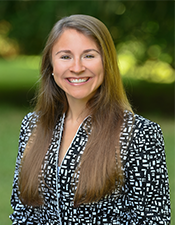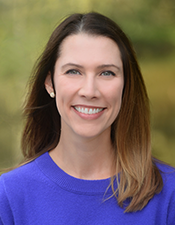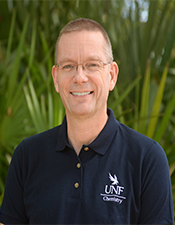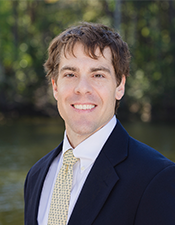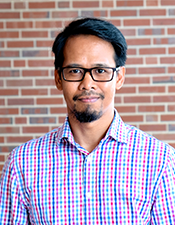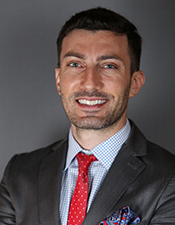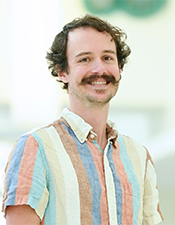FACULTY EXECUTIVE BOARD
Strategic Leadership Across Disciplines
The IERE Faculty Executive Board plays a vital role in guiding the vision and direction of the Institute of Environmental Research and Education. IERE faculty represent all six colleges and work together to ensure IERE curriculum, research, and programs remain interdisciplinary, innovative, and impactful.

Faculty Board Members
Coggin College of Business
Dr. Courtney Nations Azzari is an Associate Professor of Marketing in the Coggin College of Business. Her research focuses on issues related to services marketing and transformative consumer research. Dr. Azzari seeks to better understand how services and consumption impact human and environmental well-being during transformational experiences and rituals. Her work has examined sustainable and traditional funerary services, social services, healthcare, and natural disaster recovery. Overall, she aims to understand how service providers can positively influence meaningful life experiences in ways that are inclusive, co-creative, responsive, sustainable, and considerate of well-being issues. Dr. Azzari received the 2021 American Marketing Association Marketing and Society Special Interest Group Emerging Scholar Award and a University of North Florida 2022 Outstanding Undergraduate Teaching Award.
Brooks College of Health
Joint Faculty — 2022-2023
Dr. Amber Barnes is an Assistant Professor in the Department of Public Health in the Brooks College of Health. She teaches undergraduate and graduate courses in global health, global health: water, sanitation and hygiene, environmental health and public health research. Her research is focused on the prevalence of zoonotic enteric parasites among vulnerable humans, animals and their shared environment using a One Health approach. Dr. Barnes also investigates individual and household risk factors for zoonotic disease exposure surrounding water, sanitation and hygiene services and behaviors as well as human-animal contact related to culture, agriculture and gender roles. She leads the Coastal One Health and Zoonoses lab.
Coggin College of Business
Joint Faculty — 2025-present
Dr. Chris W Baynard is an Associate Professor in Geography and Geographic Information Systems in the Department of Economics and Geography in the Coggin College of Business. He teaches undergraduate and graduate courses in GIS, remote sensing and economic, cultural and physical geography with several of the courses being offered as independent study courses. Additionally, he has developed and led study abroad courses focused on the wine industry in Argentina and Chile, alternative energy and sustainability in Holland, Germany, Spain (and Florida), as well as the mining industry in Chile (and Florida). Dr. Baynard's research has focused on mapping and monitoring surface disturbances created by extractive activities, such as oil and gas to reduce the surface footprint and render the activities more sustainable. Other research areas include earthquakes and injection wells in the Central US and the environmental and social effects of nuclear testing legacy in southern Nevada.
Hicks Honors College
Dr. Scott Brown is a Professor of Art History and Interim Dean of the Hicks Honors College, as well as Vice Chair of the Board of Trustees of the Museum of Contemporary Art Jacksonville. His research and teaching address the history of medieval and early modern art. His recent publications explore legal and judicial significance in medieval art, including images of beards, baldness, and Apocalypse in the medieval Beatus manuscripts and monumental art. Dr. Brown's recent courses explore a “hyperlocal” art history that reexamines the history of art from the 15th century to the present from a standpoint in North Florida.College of Arts and Sciences
Dr. Stuart J. Chalk is a Professor in the Department of Chemistry and Biochemistry at the University of North Florida. Although trained as an analytical chemist, Dr. Chalk’s research now focuses on the areas of Chemical Informatics and Data Science. In particular, Dr. Chalk has projects focused on machine accessibility of solubility, online enhancements to the IUPAC Gold Book, automated extraction and annotation of chemical property data from PDF files, and scientific data models. Dr. Chalk received an NSF funded grant in 2019 focusing on semantic integration of heterogeneous data sets from toxicology, medicine, materials, biodiversity, and chemistry. His latest project, “KnowLedger” a digital research notebook, was funded by the National Institute of Standards and Technology (NIST) in June 2021.
College of Computing, Engineering and Construction
Joint Faculty — 2022-2024
Dr. Raphael Crowley is an Associate Professor in Civil, Coastal, and Port Engineering in the Taylor Engineering Research within the College of Computing, Engineering and Construction. He teaches several courses in civil engineering related to water, fluids, coasts, and ports. Dr. Crowley’s research is usually under the umbrella of “coastal resiliency” and has included work on underwater noise during pile driving associated with bridge construction, using geomicrobial processes to strengthen shorelines, construction of artificial oyster reefs, wave forcing on beach houses, erosion around coastal bridge foundations, and development of a maritime management plan for Duval County. Dr. Crowley has also been involved in water erosion design associated with several relatively high-profile projects including the Mario Cuomo Bridge in Tarrytown, NY, the McMicken Dam in Surprise, AZ, the Chacao Channel Bridge in Chile, and the Port of Singapore.
College of Computing, Engineering and Construction
Dr. De la Cruz is an Assistant Professor of Civil Engineering in the College of Computing, Engineering and Construction. His instructional focus includes environmental engineering, impacted site characterization and remediation, environmental chemistry, life cycle analysis and techno-economic analysis. Dr. De la Cruz's research focuses on the intersection of sustainability, energy, and the protection of human health and the environment. He investigates the chemical and biological processes involved in both natural and engineered systems. He has active research on PFAS remediation through thermal and novel absorbent-based processes. Additionally, he is characterizing a large subset of organic chemicals found in the St. Johns River for chemical profiling and fingerprinting, as well as assessing their impact on human health and the environment. Dr. De la Cruz also examines the impact of waste management on climate change, particularly methane emissions from landfills and biomass carbon removal and storage (BiCRS).
College of Arts and Sciences
Joint Faculty — 2022-2025
Dr. Josh Gellers is a Professor of Political Science and Public Administration in the College of Arts and Sciences and Director of the MA in International Affairs program at UNF. He teaches courses in comparative politics and international relations. Dr. Gellers is also a Research Fellow of the Earth System Governance Project, Expert with the Global AI Ethics Institute, and former Fulbright Scholar to Sri Lanka. His research, which has been cited in UN and EU reports, focuses on environmental governance, rights, and technology. He has received the Outstanding Undergraduate Teaching Award, Outstanding International Leadership Award, and Outstanding Faculty Scholarship Award from UNF, been named Green Teacher of the Year by the U.S. Green Building Council Florida (Northeast Florida Region), and received the Environmental Achievement Award from the Jacksonville Environmental Protection Board. He is the author of The Global Emergence of Constitutional Environmental Rights (Routledge 2017) and Rights for Robots: Artificial Intelligence, Animal and Environmental Law (Routledge 2020).
Silverfield College of Education and Human Services
Dr. Katrina Hall is an Associate Professor in Teaching, Learning and Curriculum in the College of Education and Human Services. She teaches undergraduate and graduate courses with a focus on literacy. Her research centers around literacy, play and outdoor learning through the lens of culturally responsive, whole child approach. Dr. Hall also partnered with Dr. Largo-Wight to run a pilot study on cultivating healthy school environments focusing on outdoor classrooms.
College of Arts and Sciences
Dr. Scott Jones is an Assistant Professor in Biology in the College of Arts and Sciences. He is an ecologist seeking to understand ecosystems through a plant lens. Dr. Jones' instructional focuses on plant anatomy and physiology as well as coastal ecosystem ecology. His research centers around the fundamental questions of how ecosystems respond to the rapid pace of global environmental change along with how plants mediate ecosystem function and response. Dr. Jones uses wetlands as model ecosystems, as they are globally threatened, are important players in the carbon cycle and affect climate, and require interdisciplinary approaches to understand. His work thus spans several fields, including biogeochemistry, plant physiology, hydrology, and soil science. Dr. Jones uses methods from these fields in manipulative experiments, field surveys, and modeling exercises. Through his federal agency experience, he is passionate about how these questions lead to action.
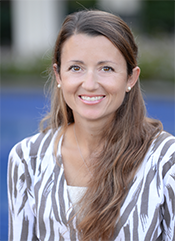 Erin Largo-Wight, Ph.D. — Director
Erin Largo-Wight, Ph.D. — Director
Institute of Environmental Research and Education
Dr. Erin Largo-Wight is a Professor of Public Health and the Director of the Institute of Environmental Research and Education. Dr. Largo-Wight’s teaching focuses on behavioral and social solutions to public and environmental health problems. She is a research scientist and the lead of the UNF Nature and Health Laboratory studying the impact of nature on human health (nature and well-being), as well as the impact people have on the environment (social behavioral research). Her research assumes a reciprocal relationship between the environment and people (One Health). The focus is on testing nature interventions by measuring the impact of nature on health and well-being outcomes in various settings (homes, schools, workplaces, and communities). Dr. Largo-Wight also explores environmental health behaviors, strategies to promote change, and other social behavioral solutions to environmental problems. Her research has been supported by federal agencies and national associations and foundations (e.g., NOAA, APHA) and has been published and well cited in the research literature, as well as widely covered in news and popular press outlets in the U.S. and Europe. She has received impact and excellence awards focused on this work, and proudly serves on local and national boards and alliances to further environmental and nature research and initiatives.
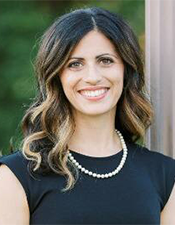
Silverfield College of Education and Human Services
Dr. Adrien Malek-Lasater is an Assistant Professor in Early Childhood Education in the College of Education and Human Services and the Director of Research and Professional Development for the UNF Preschool. She advocates for constructivist teaching approaches and supports children's learning through inquiry and experience. Dr. Malek-Lasater has a strong interdisciplinary background in both practice and research. Her research interests focus on improving learning environments for teachers and children, specifically fostering positive teacher and child well-being and improving mealtimes in early care and education settings.
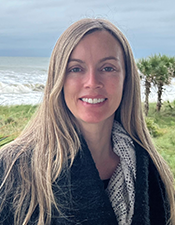 Heather Barnes Truelove, Ph.D.
Heather Barnes Truelove, Ph.D.
College of Arts and Sciences
Joint Faculty — 2022-present
Dr. Heather Barnes Truelove is a Professor of Psychology in the College of Arts and Sciences. She teaches courses in the areas of social psychology and research methods, including conservation psychology. Her research interests center on the psychology of pro-environmental behavior including research on perceptions of environmental problems, application of behavior change theory to predict environmental behavior, and design and evaluation of behavior change interventions. Her work has been supported by several federal agencies, including NSF and NOAA, and has been widely published and cited. Dr. Truelove has won numerous university and college-wide awards, including UNF’s Distinguished Professor Award, for her record of distinction within teaching, research, and service.

